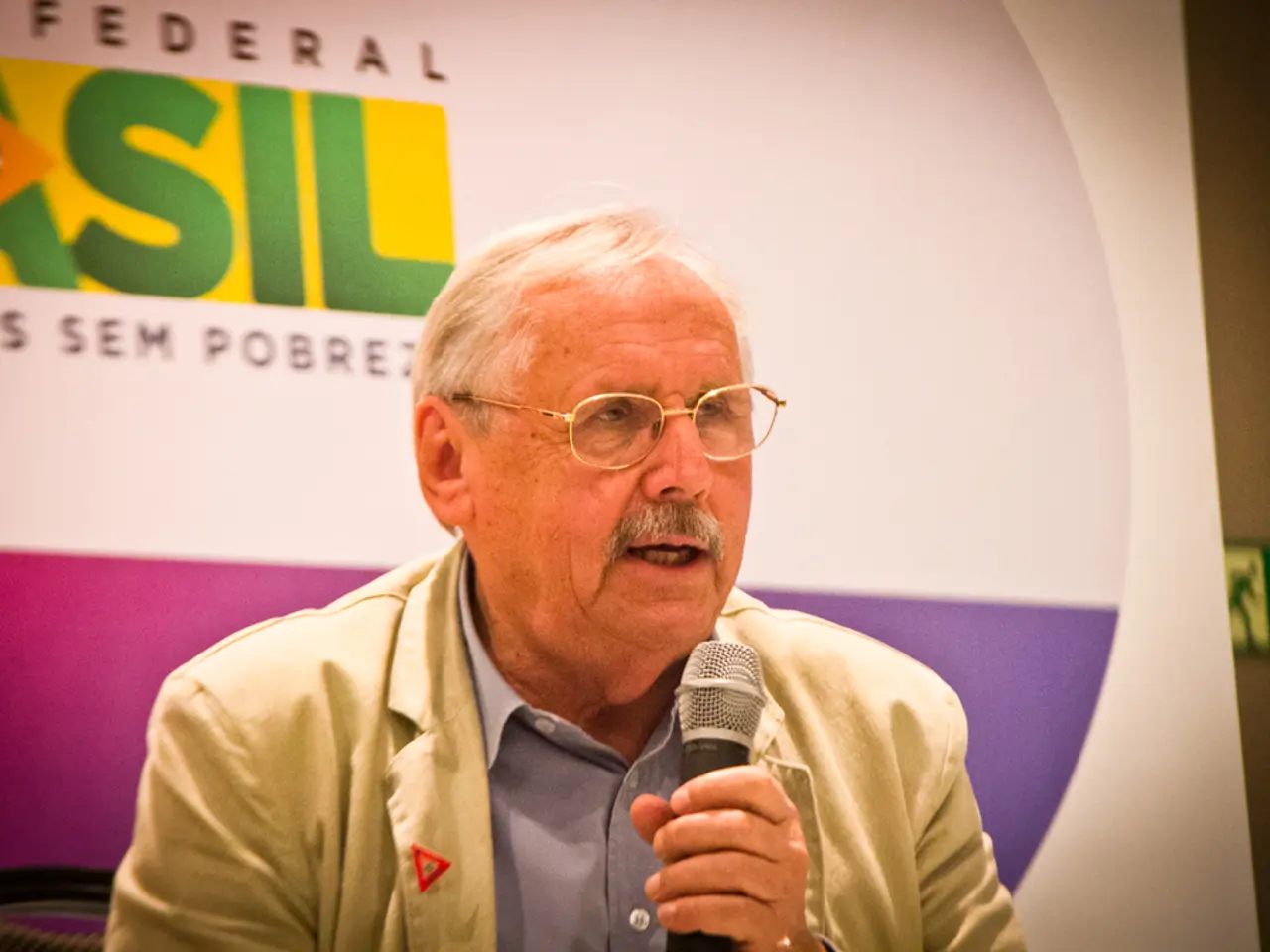Delving into political discourse, Boris Palmer poses the question: Is it beneficial to engage with conservative perspectives?
In the realm of political research, the stage theory has long been a guiding principle for dealing with far-right parties. This theory suggests that these parties progress through identifiable phases, from emergence to potential decline, and that governments and societies can contain or moderate their impact by tailoring responses accordingly. However, recent developments and adaptive strategies employed by far-right parties have called into question the theory's long-term effectiveness.
According to Leonie de Jonge, the newly appointed professor for right-wing extremism research in Tübingen, the argument that giving far-right groups a platform in traditional media will only make them stronger is refutable. This perspective is exemplified by the case of the Flemish Block, a far-right political party in Belgium, which has been cited as an example when discussing the effects of giving far-right groups a platform in traditional media.
The Flemish Block, known for its controversial rhetoric, explicitly targets the Flemish population and stigmatizes ethnically marked groups as part of an over-foreignization. This approach, while potentially difficult to address, is a strategic move that has contributed to the party's growth. The same can be observed in Germany, where the far-right Alternative for Germany (AfD) has capitalized on the parallel media world, where people inclined towards the party inform themselves because their topics and representatives do not appear in traditional media.
The stage theory's failure in maintaining long-term effectiveness largely comes from its oversimplified assumption of linear progression and static characteristics of far-right parties. In reality, these parties deploy complex, dynamic strategies incorporating nativism, authoritarianism, and populism that challenge containment across time.
Far-right parties evolve ideologically and organizationally, blending populism, nativism, and authoritarian tendencies to maintain or grow support, often reframing themselves to appear more "moderate" or institutional to broaden appeal. Definitional ambiguity between “radical,” “extreme,” and “far right” complicates applying fixed stages reliably because these groups’ boundaries and identities shift, undermining linear stage models.
Moreover, many far-right parties use populism’s flexible, “thin-centered” ideology, presenting themselves as voices of “the pure people” against “corrupt elites,” which can rapidly change political landscapes and voter bases, not neatly fitting progressive stages. Once far-right parties enter institutional politics, they can gain legitimacy and resources that allow them to circumvent earlier regulatory or social pressures implied by the stage theory.
In light of these challenges, it is clear that dealing with far-right parties successfully requires flexible, multi-dimensional strategies beyond the stage theory’s static, phased framework. This is particularly evident in the case of Germany, where the strategy of not involving far-right parties like the AfD in debates only works while they are not at a critical strength. However, as the AfD has grown stronger, no public broadcaster can afford not to invite them for formats that address all parties in the Bundestag.
In Belgium, the ethnic separation, particularly visible in Brussels, presents its own set of challenges in addressing far-right parties like the Flemish Block. The media's role in this context is crucial. While ignoring far-right parties may seem like a strategy to weaken them, it can actually lead to a loss of credibility and an informational divide in society that makes the extremes stronger.
In conclusion, scientific research should consider the practical feasibility of its proposals if it claims to have secure insights and advises politics. The stage theory, which once seemed a promising approach, may end up in the historical archive if it fails to adapt to the complex and dynamic strategies employed by far-right parties in the modern era.
[1] Mudde, C. (2007). The Populist Radical Right: A Pathology of Our Times. Cambridge University Press. [2] Ignazi, G. (2012). The Populist Radical Right: A New European Cleavage? Routledge.
- The stage theory's inability to maintain long-term effectiveness in dealing with far-right parties is questioned due to the parties' dynamic strategies that incorporate nativism, authoritarianism, and populism.
- Another challenge lies in the blurred definitions between "radical," "extreme," and "far-right" groups, as their boundaries and identities shift, making it difficult to apply fixed stages effectively.
- Far-right parties in modern times, such as the Flemish Block in Belgium and the Alternative for Germany (AfD) in Germany, employ populism's flexible ideology to rapidly change political landscapes and voter bases, challenging linear stage models.
- Far-right parties evolve ideologically and organizationally to maintain or grow support, often reframing themselves to appear more "moderate" or institutional to broaden appeal.
- In the realm of political research, it is crucial for theoretical models, such as the stage theory, to adapt to the complex and dynamic strategies employed by far-right parties to remain relevant and effective in the modern era.








